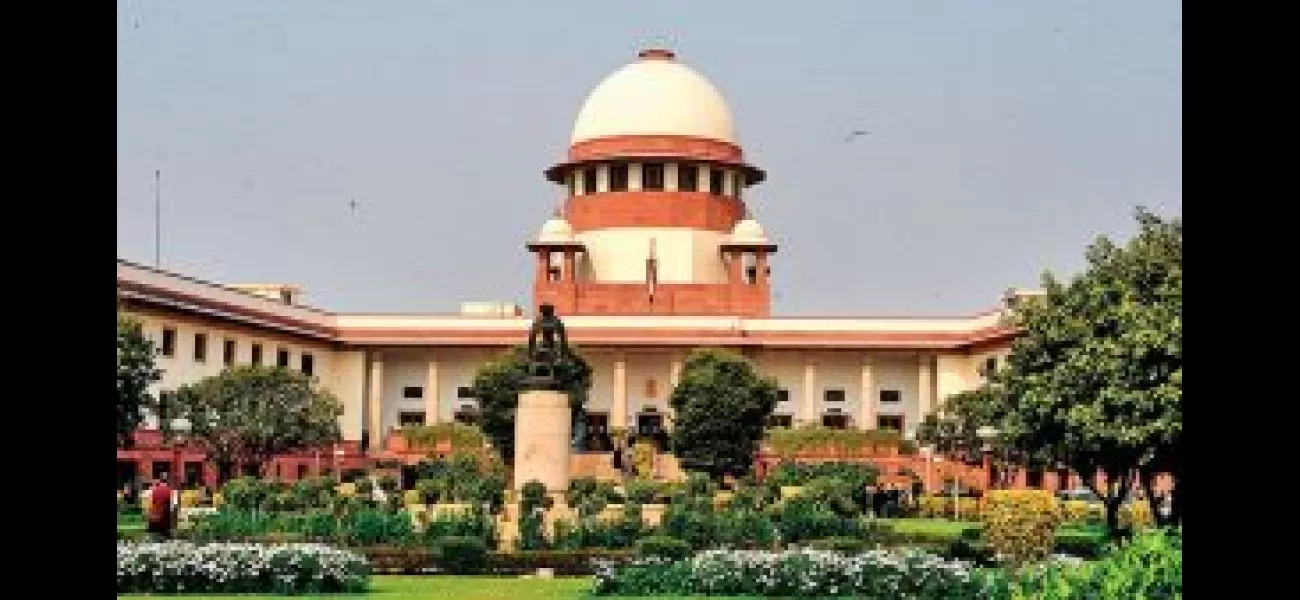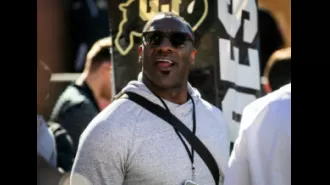The Supreme Court asks Odisha for a response on the request for reduced punishment by Dara Singh, the main accused in the Staines murder case, who claims to be remorseful.
SC seeks Odisha govt's response on plea for release of Dara Singh, convicted for killing Australian missionary and his sons in 1999.
July 9th 2024.

In a recent development, the Supreme Court has requested the Odisha government to provide a response to a petition seeking the premature release of Ravindra Pal alias Dara Singh. Singh, who is currently serving a life sentence for the brutal killing of Australian missionary Graham Stuart Staines and his two young sons in Keonjhar district back in 1999, has expressed deep remorse for his actions and is seeking mercy from the court to give back to society through service-oriented actions.
A bench consisting of Justices Hrishikesh Roy and SVN Bhatti issued a notice to the Odisha government, giving them a period of six weeks to respond. The plea, filed by Singh's advocate Vishnu Shankar Jain, states that after spending over 24 years in prison, Singh has come to understand the consequences of his actions and is now seeking a chance to make amends and contribute positively to society.
Singh's plea also includes a request for the state government to consider his case for premature release in accordance with the guidelines for life convicts issued in 2022, as he has already served more than 14 years of his sentence, which is the qualified period according to the policy. It is worth noting that Singh has never been granted parole, and even when his mother passed away, he was denied the opportunity to perform her last rites.
Singh believes that it is the legal obligation of the appropriate authorities to consider his case for premature release under the 'Guideline for Premature Release 2022' passed by the Odisha government. However, he claims that they have failed to do so, which has resulted in his right to liberty, as stated in Article 21 of the Constitution, being violated.
He deeply regrets the actions he took more than two decades ago, stating that in the heat of youth and fueled by passionate reactions to the history of India, his actions were a momentary loss of restraint. He also clarifies that there was no personal animosity towards any of the victims. Singh firmly believes in the philosophy of Karma and is praying to the court for an opportunity to reform and improve his character.
The incident in question took place in 1999 when a mob led by Singh attacked Staines and his two sons, Philip and Timothy, while they were sleeping in their station wagon. The vehicle was then set on fire in Manoharpur village of Keonjhar district. Singh, who was the main accused in the triple murder, was sentenced to death by a CBI court in 2003. However, the Orissa High Court commuted his sentence to life imprisonment in 2005, which was later upheld by the Supreme Court in 2011.
One of Singh's accomplices, Mehendra Hembram, is also serving a life sentence in the case, while 11 others were acquitted by the high court due to lack of evidence. Staines and his wife Gladys were well-known for their work with leprosy patients through the Mayurbhanj Evangelical Missionary organization. In 2005, Gladys was awarded the Padmashree for her contributions. She has publicly stated that she has forgiven her husband and sons' killers and holds no bitterness towards them.
Singh's petition also refers to the 2022 decision in the case of former Prime Minister Rajiv Gandhi's assassination, where a convict serving a life sentence was ordered to be released by the Supreme Court. In line with the theory of reformative justice put forward by renowned jurist and former apex court judge VR Krishna Iyer, Singh argues that every saint has a past, and every sinner has a future. He believes that the principle of reformative theory emphasizes the renewal of the convict and the beginning of a new life for them.
As Singh reaches the later years of his life, he remains incarcerated without any hope of being released prematurely by the state government. He claims that his right under Article 21 of the Constitution is being violated. He also alleges that he is being discriminated against as other individuals in similar situations have been released prematurely after serving the same or lesser period in prison.
In light of these facts and laws, Singh's plea requests the court to issue necessary directions to the respondent authorities to consider his case and order his release. He hopes that his case, having met all the qualifications and conditions, will result in him being granted the opportunity to begin a new life outside of prison.
A bench consisting of Justices Hrishikesh Roy and SVN Bhatti issued a notice to the Odisha government, giving them a period of six weeks to respond. The plea, filed by Singh's advocate Vishnu Shankar Jain, states that after spending over 24 years in prison, Singh has come to understand the consequences of his actions and is now seeking a chance to make amends and contribute positively to society.
Singh's plea also includes a request for the state government to consider his case for premature release in accordance with the guidelines for life convicts issued in 2022, as he has already served more than 14 years of his sentence, which is the qualified period according to the policy. It is worth noting that Singh has never been granted parole, and even when his mother passed away, he was denied the opportunity to perform her last rites.
Singh believes that it is the legal obligation of the appropriate authorities to consider his case for premature release under the 'Guideline for Premature Release 2022' passed by the Odisha government. However, he claims that they have failed to do so, which has resulted in his right to liberty, as stated in Article 21 of the Constitution, being violated.
He deeply regrets the actions he took more than two decades ago, stating that in the heat of youth and fueled by passionate reactions to the history of India, his actions were a momentary loss of restraint. He also clarifies that there was no personal animosity towards any of the victims. Singh firmly believes in the philosophy of Karma and is praying to the court for an opportunity to reform and improve his character.
The incident in question took place in 1999 when a mob led by Singh attacked Staines and his two sons, Philip and Timothy, while they were sleeping in their station wagon. The vehicle was then set on fire in Manoharpur village of Keonjhar district. Singh, who was the main accused in the triple murder, was sentenced to death by a CBI court in 2003. However, the Orissa High Court commuted his sentence to life imprisonment in 2005, which was later upheld by the Supreme Court in 2011.
One of Singh's accomplices, Mehendra Hembram, is also serving a life sentence in the case, while 11 others were acquitted by the high court due to lack of evidence. Staines and his wife Gladys were well-known for their work with leprosy patients through the Mayurbhanj Evangelical Missionary organization. In 2005, Gladys was awarded the Padmashree for her contributions. She has publicly stated that she has forgiven her husband and sons' killers and holds no bitterness towards them.
Singh's petition also refers to the 2022 decision in the case of former Prime Minister Rajiv Gandhi's assassination, where a convict serving a life sentence was ordered to be released by the Supreme Court. In line with the theory of reformative justice put forward by renowned jurist and former apex court judge VR Krishna Iyer, Singh argues that every saint has a past, and every sinner has a future. He believes that the principle of reformative theory emphasizes the renewal of the convict and the beginning of a new life for them.
As Singh reaches the later years of his life, he remains incarcerated without any hope of being released prematurely by the state government. He claims that his right under Article 21 of the Constitution is being violated. He also alleges that he is being discriminated against as other individuals in similar situations have been released prematurely after serving the same or lesser period in prison.
In light of these facts and laws, Singh's plea requests the court to issue necessary directions to the respondent authorities to consider his case and order his release. He hopes that his case, having met all the qualifications and conditions, will result in him being granted the opportunity to begin a new life outside of prison.
[This article has been trending online recently and has been generated with AI. Your feed is customized.]
[Generative AI is experimental.]
0
0
Submit Comment





